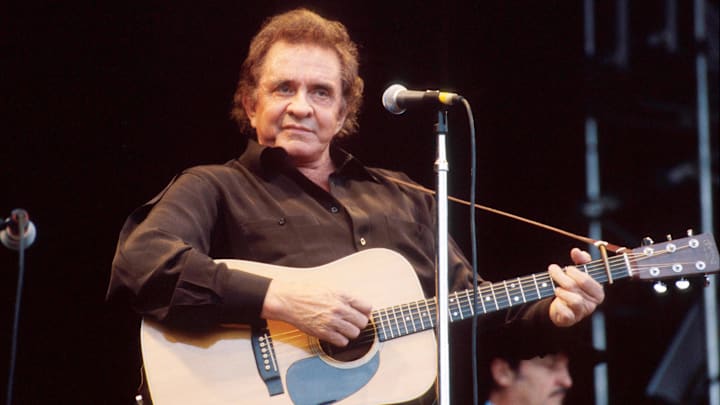8. Loco Gringo’s Lament by Ray Wylie Hubbard
Like Jerry Jeff Walker, Ray Wylie Hubbard was a songwriter first and foremost. He first made his mark by writing “Up Against the Wall Redneck Mothers,” which Jerry Jeff made a hit in 1973. Hubbard started recording his own music a decade later but never achieved major label success. But he has been putting out strong albums for many decades. Loco Gringo’s Lament, his sixth studio release, was among the best of his early work.
It opens with a true lament – the epic “Dust of the Chase.” He rocks (“Wanna Rock and Roll”) and gets sweet (“Bless the Hearts of the Lonely.”) He gets swampy (“Little Angel Comes a Walkin’) and poetic (“The Messenger”). He is at his best on “The Real Trick,” a sprawling narrative of figuring it all out – as he sings “ The real trick is to find a reason to believe of all of this – And the big secret is, what you’re looking for, you’re looking with.” Ray is in well into his 70s now, and still going strong.
7. What a Crying Shame by The Mavericks
Right in the middle of the Mavericks' third album, What a Crying Shame, they casually toss in a cover of Bruce Springsteen. They make “All That Heaven Will Allow” sound like it was always intended to be a country song. The Mavericks are capable of slowing things down as they do in the sweet “Neon Blue.” But they tend to be at their best when they dive in on western swing. The country-cool “The Things You Said to Me,” is a perfect groove upon which Raul Malo can croon his vocals.
I have heard Malo’s voice compared to that of Roy Orbison, and if you imagine Orbison singing over fiddles and a pedal steel guitar, you get a sense of What a Crying Shame. The rock and pop that sometimes hearkens back to the ‘60s and even the ‘50s, can confuse listeners as they try to place the act.
Roots rock and Americana weren’t exactly hot genres in the ‘90s. There was no Outlaw Country satellite channel to push their music on the radio, so the Mavericks played to plenty of dedicated fans without ever becoming major recording artists. That would improve over time, but it had nothing to do with the band getting better. They were already worthy of attention in 1994.
